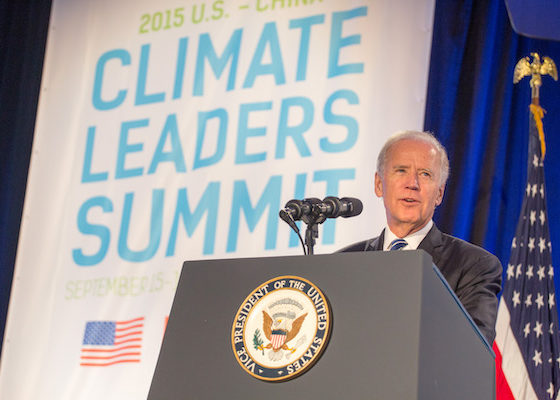In late March, Denver welcomed warm sunshine and 70-degree weather, only to be hit with a blizzard in the following days. Denver continues to experience polarizing weather as just last week a spring snowstorm covered the streets. However, it did not last long as this past weekend temperatures reached 80 degrees.
Although Denver is known for inconsistent weather patterns, this has led many to question the normality of this situation. At what point do we stop acting oblivious to the extreme weather changes around us and admit to ourselves that the planet is dying?
Climate change has been in the public consciousness since the 1970s. However, scientists struggled to get corporations, world leaders and the general public to view climate change as a threat, and many still deny its existence.
In 2015, many countries committed to the Paris Climate Agreement, an international promise to reduce carbon emissions over time. The treaty claims to be legally binding but has no official consequences for any nation that does not meet its self-assigned goal. The agreement set the global warming threshold at 2 degrees celsius.
In 2021, the world is reaching this threshold at an alarmingly fast pace. The United States’ contributions to climate change are mainly due to carbon emissions and the burning of fossil fuels.
During the global pandemic, there was a significant decline in global carbon emissions. This gave many people hope that progress was being made. However, as soon as many industries started to resume work and production, global emissions began to spike again. They are on track for the second-largest annual increase in 2021, jumping 1.5 gigatonnes due to a major demand for coal for the electricity sector.
Not only has this had a major impact on severe weather patterns, but it has also affected our oceans. While the atmosphere has benefited greatly from having 30% of carbon dioxide emissions absorbed by our oceans, these bodies of water have suffered greatly.
When ocean water mixes with carbon dioxide, it forms carbonic acid. This is what causes ocean acidification. The planet is already experiencing a 30% increase in ocean acidification, and oceans are expected to drop another .3 units on the pH scale. This would represent a 150% increase in ocean acidification.
With ocean acidification accelerating 100 times faster than any other point in history, these bodies of water will not survive without intervention.
The urgent nature of this issue led President Joe Biden to partake in a virtual Earth Day Summit last week to discuss plans of action regarding climate change and foreign policy. The director of national intelligence, Avril Haines, spoke to world leaders about how climate change can no longer be categorized as a peripheral issue and instead needs to be at the center of U.S. foreign policy.
Haines went on to state that climate change “needs to be fully integrated with every aspect of our analysis. [This will] allow us, not only to monitor the threat but also to ensure that policymakers understand the importance of climate change on seemingly unrelated policies.”
Making climate change a key priority in policy-making is a necessity to saving our future from its diminishing and soon-to-be fatal effects.
Biden has plans to cut emissions in half by the end of the decade. He has stated that changes will be made to ensure funds are given to developing countries to tackle this issue. Despite the drastic changes Biden has already made to remedy the actions of former President Trump, there is concern that these policies will not be kept in place after Biden’s presidency.
When Trump took office, he discarded the climate policies instituted by the Obama administration, leaving many worried that a future president could repeat this decision.
John Kerry, Biden’s global climate change envoy, has spoken on these concerns and has “insisted the private sector will cement clean energy policies into reality,” despite the possibility that a future politician could overturn Biden’s policies.
Being the first U.S. President to host an Earth Day summit, it is clear that Biden is making strides to combat the issue of climate change. Many scientists are urging the government to take effective measures to prevent global temperatures from exceeding 1.5 degrees above pre-industrial levels. Biden has brought world leaders together to finally put this issue at the center of all foreign policy in an attempt to make a change.
Wanting to cut US greenhouse emissions in half by the end of the decade, the Biden administration has stated they will be offering $5.7 billion dollars a year by 2024 to go towards the issue of climate change and will work closely with Congress to achieve this.
A driving factor in accomplishing this is to accelerate the growth of electric vehicle usage, which Biden is committed to accomplishing. Not only will this help immensely in his goal to cut U.S. greenhouse gas emissions in half, but it will make a drastic impact on excess use of plastic which is killing our oceans and our planet. With an acceleration in the usage of electric vehicles, many refineries will limit the supply of naphtha used to make plastic.
Putting new policies in place with the goals of cutting global emissions, limiting plastic and focusing on clean energy jobs, are all effective measures that Biden has made a priority in his time in office. Taking these steps and placing climate change in the center of foreign policy, Biden is on the right track. His administration will help the U.S. combat the issue of climate change, and it will inspire other countries to come together and help finance what could soon become a complete transition to a green economy.











